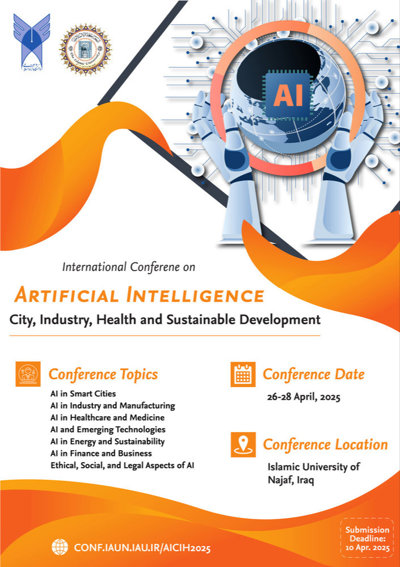0% Complete

نویسندگان :
کلمات کلیدی :
چکیده :
لیست مقالات بایگانی شده
Mohammadreza Shirzad tabrizi
Hajar Ahmadi - Azimeh NV Dehkordi - Farhad Azimifar - Seied Rabi Mahdavi - Mahnaz Roayaei
Amirhossein Ghaemipour - Habib Rajabi Mashhadi - Seyed Hossein Mostafavi
احسان آقاباباگلی
ُShayan Hosseini - Gevork Gharehpetian - Seyed Babak Mozafari - Mehrnoosh Vatani
کمال سعیدی - مژگان سعیدی
Marziyeh Tourani - Hadi Bahadori
حسن شایق - مجتبی طواری - جابر ابراهیمی
مجتبی طواری - جابر ابراهیمی - حسن شایق


